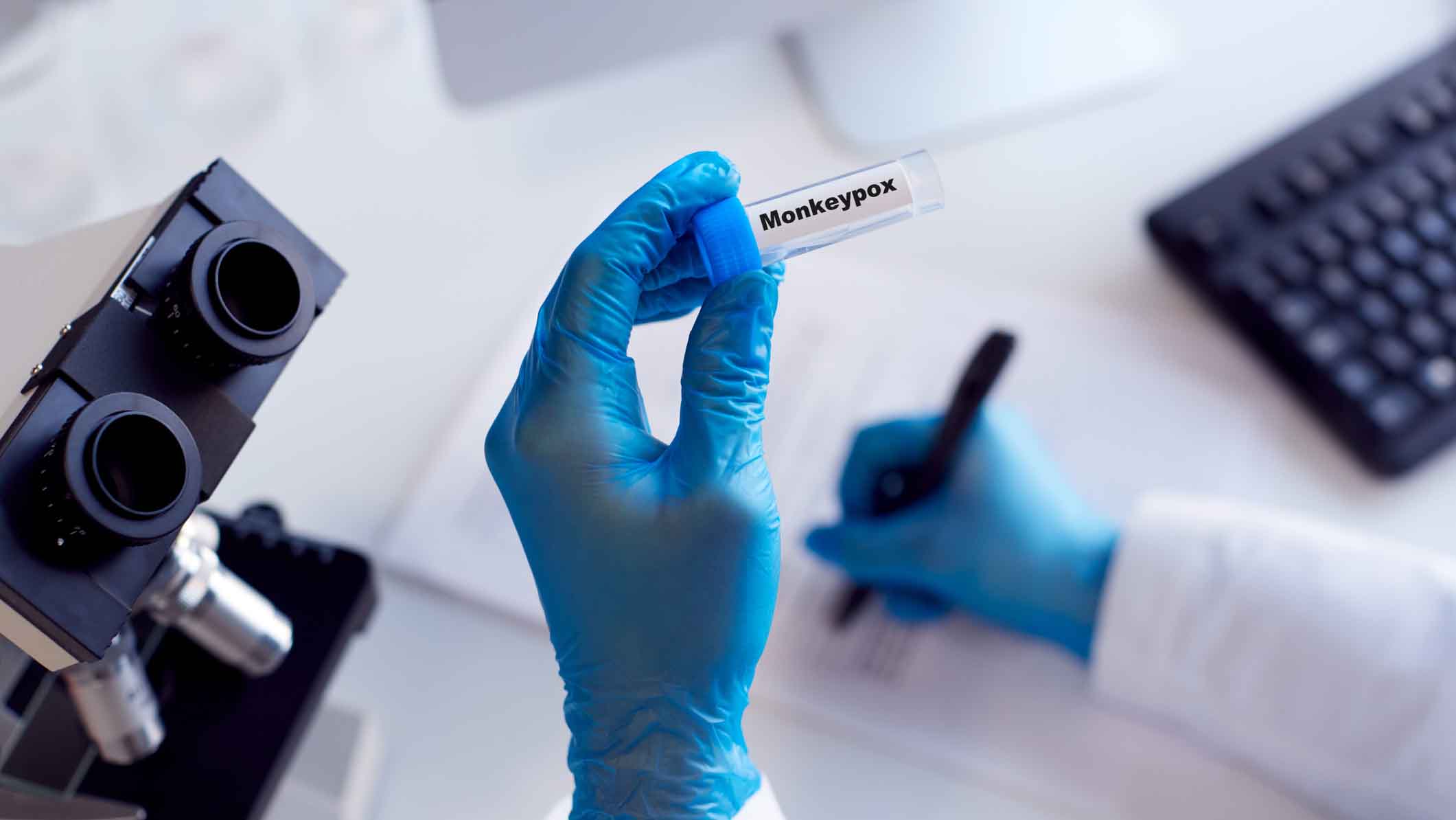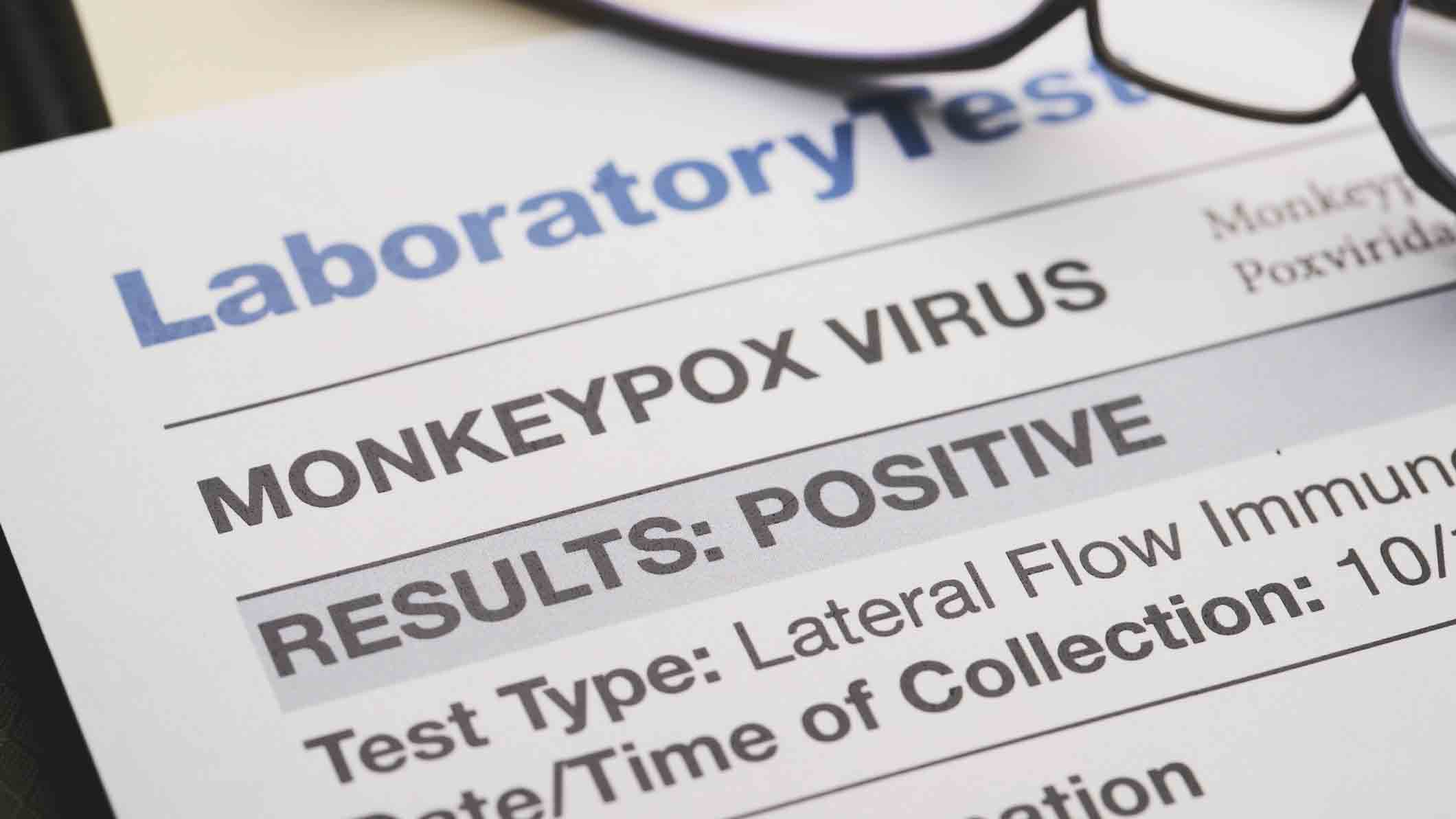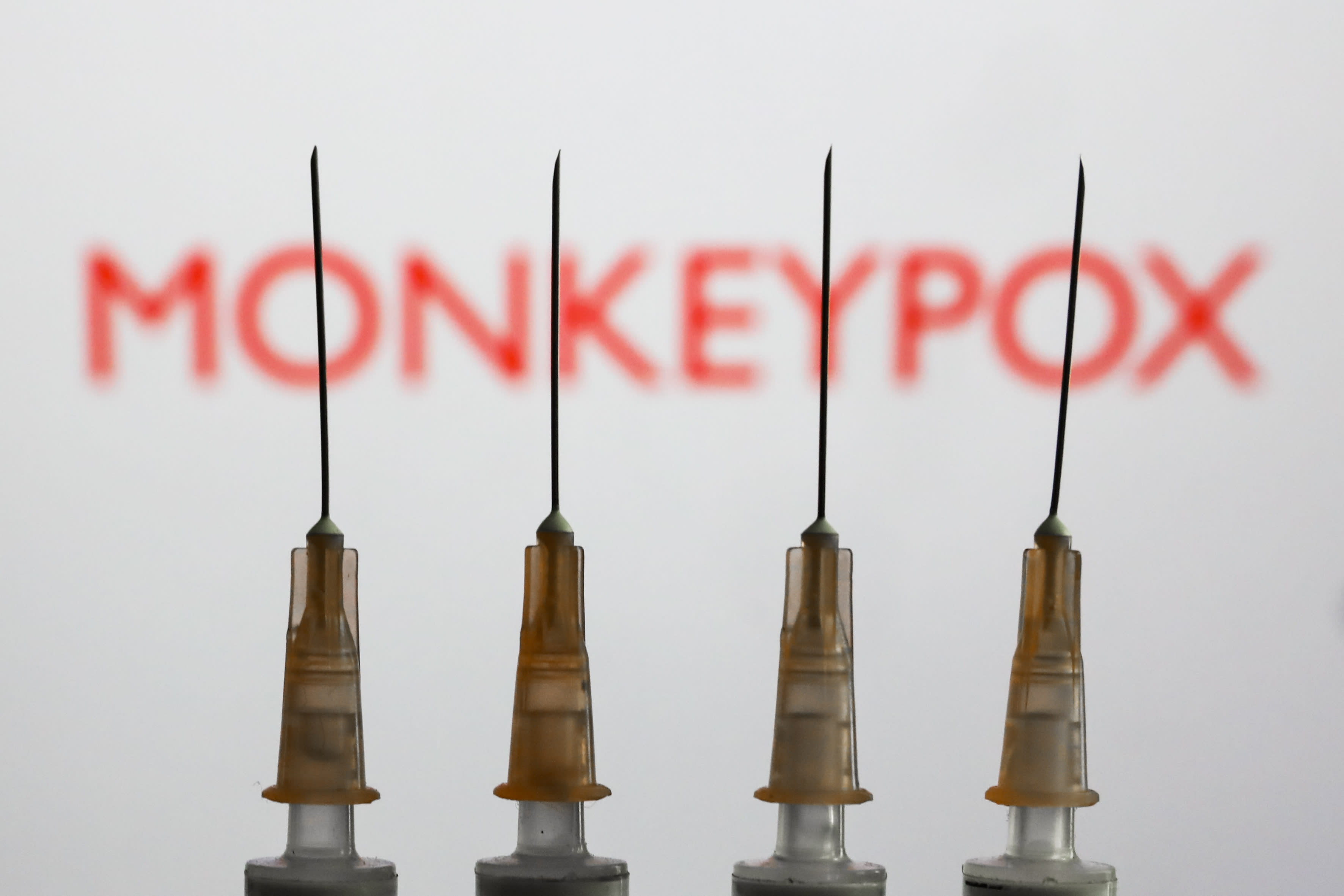New York City health officials plan to open additional appointment slots for the monkeypox vaccine Tuesday afternoon as the city navigates distribution of a frustratingly small supply of doses and cases double in the span of one week.
Getting hands on a vaccine as the outbreak worsens and New York City accounts for a sizeable fraction of the country's cases has been difficult -- only a few thousands appointment have opened in the past few weeks.
The health department says almost 7,000 doses of the vaccine will have been made available to New Yorkers when the next round of appointments become available Tuesday at 1 p.m.
An "unfortunate glitch" made opened last week's appointments prematurely, prompting a flood of confusion and a flurry of apologies from city health officials as they worked to correct the problem.
Get Tri-state area news and weather forecasts to your inbox. Sign up for NBC New York newsletters.
All of the 2,500 appointments inadvertently released last Wednesday were scooped up extremely quickly, within 10 minutes.
NYC officials added another nearly five dozen presumed monkeypox cases to the burgeoning count on Monday, bringing the total to a widely-believed underreported 223 patients as the largest-ever U.S. outbreak continues to swell.
The additions that city health officials reported on Monday mark a 100% increase in presumed monkeypox cases in one week and a 315% increase in the last two weeks. New York City accounts for nearly a fifth of the now 767 -- and climbing -- U.S. monkeypox cases reported to the CDC so far this year, data shows.
While monkeypox is contagious and typically confined to the African continent, health officials say the risk to the general U.S. public is low. They say this isn't COVID all over again because vaccines already exist to treat orthopoxvirus, the family of viruses to which monkeypox and diseases like smallpox and chickenpox belong.
But ensuring a steady supply of the FDA-approved monkeypox vaccine is a problem. And it's causing other headaches, too.
But how does the monkeypox vaccine even work? It's a two-dose vaccination process like many others, though the vaccine supply issue may mean some New Yorkers have to wait an extra week or two to get their next layers of protection against monkeypox.
Meanwhile, officials are scrambling to establish a widely accessible treatment network for a disease that usually doesn't hit the United States -- ever.
One vaccine clinic has already been opened at the Chelsea Sexual Health Clinic on Ninth Avenue in Manhattan, though no appointments have been available. That location, along with another at the Central Harlem Sexual Health Clinic (2238 Fifth Avenue in Manhattan), was open on Thursday for appointments only. A third site, located at the Corona Sexual Health Clinic, is expected to open later this month.
At this point, eligibility in New York City is limited to "gay, bisexual or other men who have sex with men and transgender, gender non-conforming or gender non-binary persons ages 18 and older who have had multiple or anonymous sex partners in the last 14 days," under the guidelines released by the health department. Learn more here.
On Long Island, Suffolk County opened an online monkeypox portal for vaccination appointments Monday. In less than two hours, all 750 available appointment slots had been filled, with all the doses to be given out at two locations on Fire Island later in the week.
There have been four confirmed cases in Suffolk County, and one in Nassau County, which has been given 400 doses to dole out. Officials at Northwell Health — which is overseeing much of the vaccine distribution on Long Island — are hopeful more doses and testing will soon be made available.
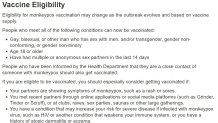
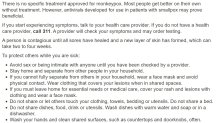
How Do You Catch Monkeypox?
The CDC recently updated its monkeypox guidance as the number of suspected cases nationwide boomed.
While the CDC says the risk to the general public remains low, people are urged to avoid close contact with those who are sick, including those with skin or genital lesions, as well as sick or dead animals. Anyone displaying symptoms, like unexplained skin rash or lesions, should reach out to their healthcare providers for guidance.
It is also advised to avoid eating meat that comes from wild game or using products (such as creams, powders or lotions) that come from wild animals from Africa.
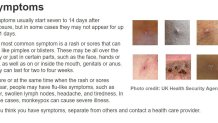
What Is Monkeypox?
Monkeypox was first discovered in 1958, when outbreaks occurred in colonies of monkeys kept for research -- resulting in its name. (What you need to know about monkeypox.)
The first case in a human was reported in 1970 in the Democratic Republic of the Congo, which still has the majority of infections. Other African countries where it has been found: Cameroon, Central African Republic, Cote d’Ivoire, Democratic Republic of the Congo, Gabon, Liberia, Nigeria, Republic of the Congo and Sierra Leone.
Human symptoms of monkeypox are similar to but milder than the symptoms of smallpox, the CDC says. It presents itself as a flu-like illness accompanied by lymph-node swelling and rash on the face and body.
Monkeypox starts off with fever, headache, muscle aches, and exhaustion. Monkeypox also causes lymph nodes to swell, something that smallpox does not. The incubation period is usually 7−14 days but can range from 5−21 days.
The CDC is urging healthcare providers in the U.S. to be alert for patients who have rashes consistent with monkeypox, regardless of whether they have traveled or have specific risks for monkeypox. See more information from the travel notice here.

